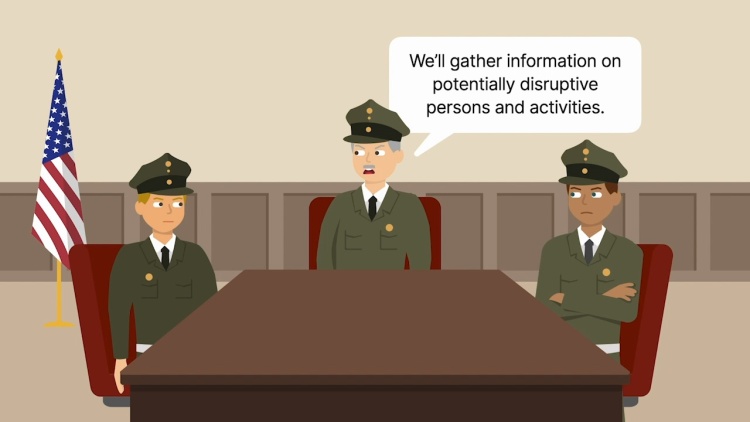Laird v. Tatum
United States Supreme Court
408 U.S. 1 (1972)
- Written by Samantha Arena, JD
Facts
Federal statute 10 U.S.C. § 331 gives the president power to use the armed forces to subdue an uprising in a state against its government if the state has requested assistance to suppress it. Acting under the authority of § 331, President Johnson called in federal troops to help dissipate civil unrest in Detroit, Michigan, resulting from the assassination of Dr. Martin Luther King, Jr. The events in Detroit caused army officials to question whether they were prepared for providing assistance in such situations. To address these concerns, the army (defendant) implemented a data-gathering program to develop a more efficient strategy in responding to local authorities’ requests for assistance. The system involved gathering information about civilian activities that might cause civil disorder and reporting that information to various army posts. The main sources of information were news media and other publicly available materials. A group of individuals (plaintiffs) who had engaged in what they referred to as “lawful and peaceful civilian activity” brought a class action suit, seeking declaratory and injunctive relief, claiming that their First Amendment rights were violated by the army’s surveillance program.
Rule of Law
Issue
Holding and Reasoning (Burger, C.J.)
Dissent (Douglas, J.)
Dissent (Brennan, J.)
What to do next…
Here's why 907,000 law students have relied on our case briefs:
- Written by law professors and practitioners, not other law students. 47,100 briefs, keyed to 996 casebooks. Top-notch customer support.
- The right amount of information, includes the facts, issues, rule of law, holding and reasoning, and any concurrences and dissents.
- Access in your classes, works on your mobile and tablet. Massive library of related video lessons and high quality multiple-choice questions.
- Easy to use, uniform format for every case brief. Written in plain English, not in legalese. Our briefs summarize and simplify; they don’t just repeat the court’s language.





